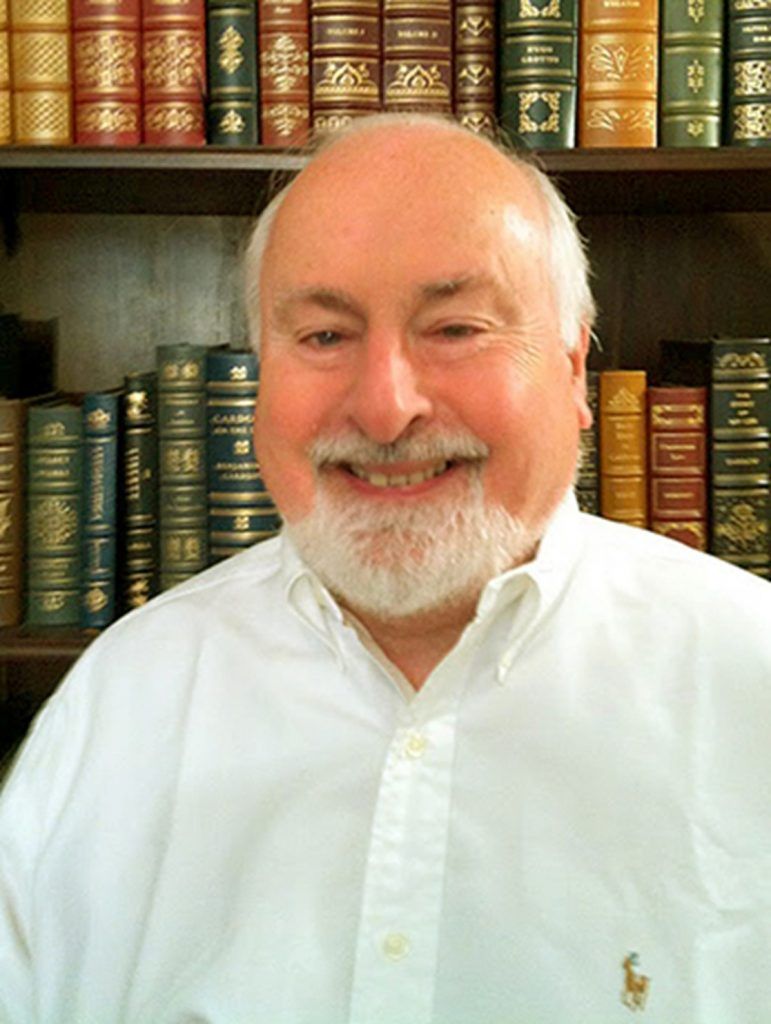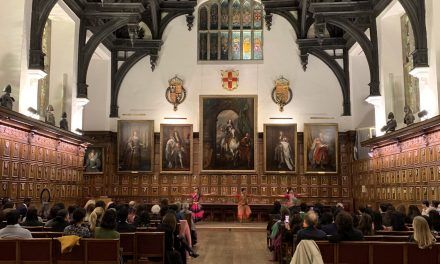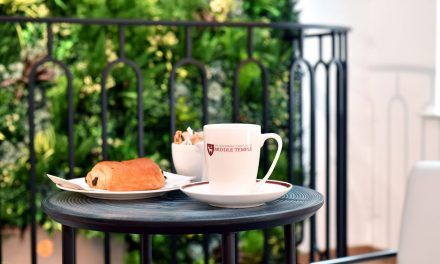When Master David Bean, then Master Treasurer, asked me to put my name forward as the next Master of the Library, it came as a surprise. When I had the great honour of being elected a Bencher, it never occurred to me that I might be a Master of something. But Master Bean had a good reason for asking; there was an urgent problem with the storage of the Inn’s famous American collection. I had spent a number of years teaching at an American law school, so I am very familiar with American law reports and treatises and could advise on their relative importance and utility. Of this, more anon.
I was a regular Library user both as a student and later in my career and have always admired the efficiency and helpfulness of our staff. But it was only as I came to know our Librarian, Renae Satterley, and some of our current staff, that I began to understand the true extent of their professionalism and commitment to providing members of Domus and outside users with such brilliant service. This was exemplified by their extraordinary efforts to maintain a service during the time of Covid, including lockdown, both for our members and the other Inns. This led to Renae and her staff receiving a well-deserved award this year, from the British and Irish Association of Law Librarians Committee and LexisNexis, which wrote:
There were a number of strong entries for 2021 but after some debate, the Committee decided that the award should go to this team [Middle Temple Library]. Their achievements included coping with the packing, sorting and moving of 3 kilometres of books while maintaining their usual services and adjusting to the difficulties that the pandemic caused. Although they switched their service to providing most material remotely, they also recognised that some of their users still had a need to visit the library in person and set up an appointment system to accommodate them. The service received an impressive number of testimonials from a range of users including one barrister, from another Inn, who said that he used this team’s Library rather than his own Inn’s library because of its exceptional customer service. Another user said they did not know what they would have done without the services of Middle Temple when many other libraries were shut due to the virus.
The reference to the moving of three kilometres of books brings me back to Master Bean’s request for my help with the American collection. The development of the basement into The Garden Room involved, in fact, the relocation of closer to 4.5 kilometres of books which had been stored there, of which the American collection was a part, although some materials are stored elsewhere. It did not take me long to see that the Library had been put in a very difficult position. The developers of the basement had not realised how much time would be required for the relocation of such a large quantity of books, and the completion of The Garden Room was regarded as a matter of urgency. Renae and her staff did all they could, but inevitably some volumes had to be disposed of, and others put into outside storage, while desperate efforts were made to accommodate as many as possible in the Library itself. This issue was to dominate my time as Master of the Library. In addition to the American collection, the basement had housed many of our oldest and most valuable books. And inevitably there have been some losses and a reduction in the ease of reference to them for users, the extent of which is, even now, as yet unclear.
But there have been lighter moments too, notably a lunch Renae and I had in Hall with the ambassador from a foreign country, which shall remain nameless. The Inn has a very old book in the language of that country, donated to us by a 17th Century donor, the only other known example of which is in Copenhagen. The country concerned was requesting that we send the book to be placed in an exhibition for a considerable length of time. We suspected that if we agreed to this, we might very well never see it again, a view with which Renae’s counterpart in Denmark, to whom an advance had also been made, agreed. So, while we were happy to show the book to the ambassador, we resisted his considerable diplomatic charm. It should be said in fairness that the Inn had previously gone out of its way to send them a technological version which allows them to see the book in its full glory.
The survival and robust good health of our Library over such a long time is in some ways surprising. In his meticulous and intriguing history of the Library in modern times – a section in the History of the Middle Temple (ed. Richard O Havery, Hart Publishing 2011) – Master Stockdale points out the many perils it has faced, from floods and wartime bombs to simple neglect, which at times made the theft and desecration of books commonplace. The first full-time Librarian was appointed in 1921 and the first professionally qualified Librarian as late as 1969. Efforts to persuade the Bench to ensure an adequate staff was, at times, not an easy one, but the Librarians prevailed, and today we have a Library and staff worthy of this national treasure.
My tenure as Master of the Library has not been an easy one, but I have found it to be very rewarding, and count it as a real privilege.

Master Peter Murphy was Called to the Bar in 1968 and to the Bench in 2013. His career in the law took him to America as a law professor, and then to The Hague as counsel at the International Criminal Tribunal for the Former Yugoslavia. He returned to England as a Circuit Judge and retired as Resident Judge and Honorary Recorder of Peterborough. He wrote Murphy on Evidence, a leading student text, and was the founding editor of Blackstone’s Criminal Practice. Master Murphy passed away in August 2022, shortly after writing this article.



